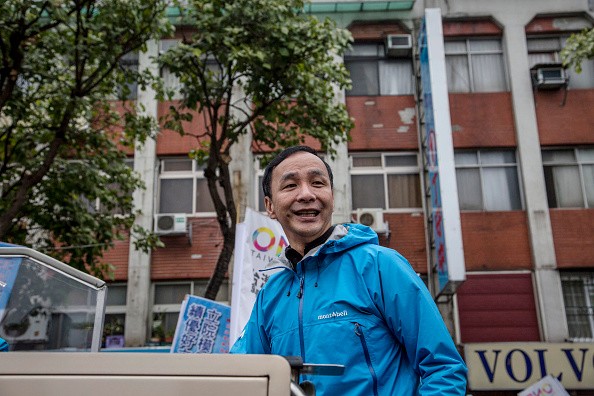The Kuomintang (KMT), Taiwan's former ruling party, held a congress on Monday to appoint Huang Min-hui as acting chairwoman after its former chairman, Eric Chu, resigned after losing the presidential election of Taiwan on Saturday, as reported by China Daily.
Huang, the former vice chairwoman of the KMT, will take charge of the affairs of the party temporarily until the KMT elects a new leader, according to a Monday report by the Ta Kung Pao newspaper.
Chu was reported as having said at the meeting that only sincere introspection and reform will allow the KMT to win back voters. He said he hoped for the next KMT leader to lead the necessary reform, and party comrades should unite their efforts to strive for a better future for Taiwan, the KMT and the people.
Chu, along with People First Party (PFP) Chairman James Soong, was defeated by Democratic Progressive Party (DPP) candidate Tsai Ing-wen, who won the election with 56.1 percent of the vote. She will take office in May.
For the legislative election also held on Saturday, 68 out of 113 seats went to the DPP, 35 to the KMT, five to the New Power Party, three to the PFP, one to the Non-Partisan Solidarity Union, and one to an independent candidate.
Chu has acknowledged his failure, having said in a speech at the KMT headquarters in Taipei that losing both the leadership and the legislative majority was an unprecedented blow to the party.
"This is the time to ask, what should we do in the future?" said Chu. "We need to cultivate talent from the grass-root level, and let our future elites and leaders enter the government, enter the legislature through local elections. This is the only way forward."
Former KMT spokesman Tang Wei-chung appealed on Facebook on Monday that the reform must start by lowering the barrier for the party leadership election, allowing more and younger people to participate in the race. Tang resigned on Saturday before the election results were in.
Li Mi, Taiwan researcher and deputy director of the Shanghai Institute for Public Relation Studies, said that several factors led to the KMT's defeat, including the economic decline and the poor handling of the government, the power struggle and infighting in the party, and the failure to win over Taiwan's voting youth.
"More than 7.2 million people in Taiwan are between 20 and 40 years old. That group is big enough to change the political map," he said. "The biggest problem the KMT had was they didn't realize the situation."



























